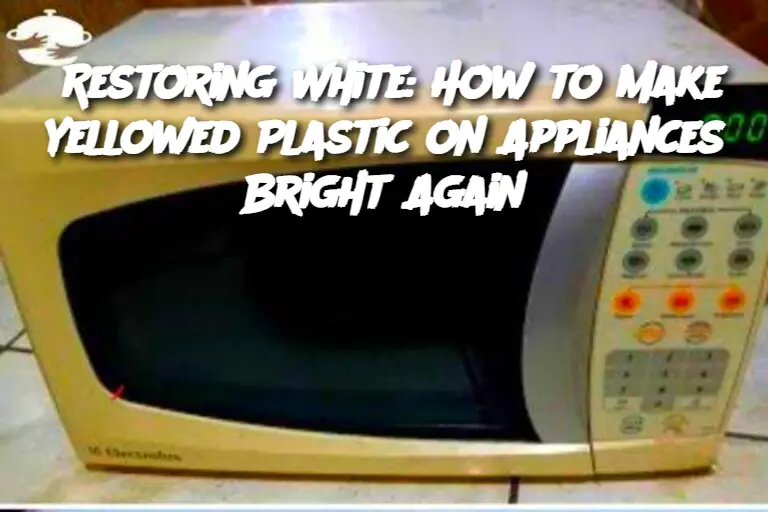ADVERTISEMENT
Introduction:
Over time, white plastic parts on household appliances—like refrigerator handles, washing machine knobs, or microwave trim—can take on an unsightly yellow hue. This yellowing is usually caused by a combination of UV light exposure, oxidation, heat, and the breakdown of flame-retardant chemicals in the plastic. Fortunately, you don’t need to replace these parts or spend a fortune to restore their original brightness. With a few household ingredients and a little patience, you can make yellowed plastic white again.
Ingredients:
You will need:
-
1 cup hydrogen peroxide (3% solution)
-
1 teaspoon baking soda (optional for added cleaning power)
-
Clear plastic wrap (cling film)
-
A small bowl or container
-
Soft-bristle toothbrush or sponge
-
Rubber gloves (to protect your skin)
-
UV light source (sunlight works great)
Preparation:
-
Clean the Surface:
Begin by wiping down the yellowed plastic with a damp cloth and a bit of dish soap to remove surface dirt, grease, and grime. -
Prepare the Whitening Mixture:
In a small bowl, mix 1 cup of hydrogen peroxide with 1 teaspoon of baking soda (optional). The baking soda can help slightly abrade the surface and boost whitening. -
Apply the Mixture:
Using a toothbrush or sponge, apply the mixture generously to the yellowed plastic. Make sure every discolored area is thoroughly coated. -
Wrap with Plastic Wrap:
Cover the treated plastic with a layer of clear plastic wrap. This prevents the peroxide from drying out and helps intensify the bleaching process when exposed to UV light. -
Expose to Sunlight:
Place the appliance (or the detachable plastic part) in direct sunlight for 3–6 hours. UV light activates the hydrogen peroxide, helping to reverse the yellowing. -
Rinse and Dry:
After the treatment, carefully remove the plastic wrap, rinse the plastic with water, and wipe it dry with a clean cloth.
Serving and Storage Tips:
-
For safety, avoid using harsh chemicals like bleach directly on appliances, especially those with electronic components.
-
Always test a small hidden area first to ensure the peroxide does not react poorly with your appliance.
-
Use gloves to protect your skin and avoid prolonged exposure to hydrogen peroxide.
-
Store leftover hydrogen peroxide in a cool, dark place to maintain its potency.
Variations:
ADVERTISEMENT
